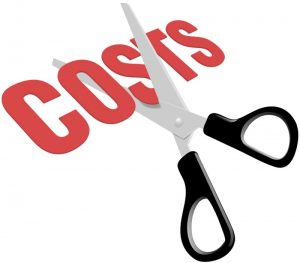 Many global companies, like Coca-Cola, Nike, Google, Intel and Microsoft, choose to use the same brand name in multiple countries.
Many global companies, like Coca-Cola, Nike, Google, Intel and Microsoft, choose to use the same brand name in multiple countries.
This is not possible for every brand, but it can often be an advantage. Think of the degree to which a single brand name simplifies marketing and increases return on advertising investment. By comparison, how much more would one of these companies need to spend to achieve the same results with a different localised brand name in every market?

 Operational margins are narrowing; leaving business owners constantly looking for ways to reduce business running costs and increase profits.
Operational margins are narrowing; leaving business owners constantly looking for ways to reduce business running costs and increase profits. More small business owners today are feeling optimistic about the economy. Nevertheless, the majority say the number of risks they are taking has remained the same over the past six months.
More small business owners today are feeling optimistic about the economy. Nevertheless, the majority say the number of risks they are taking has remained the same over the past six months.
 Jason just announced that he got a great deal on tickets for his vacation. And Emily dropped a vacation request on your desk this morning. And now, Melanie is talking about her planned summer cruise. You’re happy your employees are looking forward to summer vacations – until you look at the dates and realise that they’re all for the same week in August. Now what?
Jason just announced that he got a great deal on tickets for his vacation. And Emily dropped a vacation request on your desk this morning. And now, Melanie is talking about her planned summer cruise. You’re happy your employees are looking forward to summer vacations – until you look at the dates and realise that they’re all for the same week in August. Now what? Know the competition. Find out who your competitors are, what they are offering and what their unique selling point (USP) is. This will identify the areas you need to compete in, as well as giving you a platform for differentiating yourself.
Know the competition. Find out who your competitors are, what they are offering and what their unique selling point (USP) is. This will identify the areas you need to compete in, as well as giving you a platform for differentiating yourself. We all know that success in life depends on a combination of hard work and talent. There’s also no denying the “luck” factor – being in the right place at the right time and meeting the right people. That said, there isn’t a “secret” to that kind of luck. It’s about doing things that put you in a position for that luck to happen.
We all know that success in life depends on a combination of hard work and talent. There’s also no denying the “luck” factor – being in the right place at the right time and meeting the right people. That said, there isn’t a “secret” to that kind of luck. It’s about doing things that put you in a position for that luck to happen. For all the time executives spend concerned about physical strength and health, when it comes down to it, mental strength can mean even more. Particularly for entrepreneurs, numerous articles talk about critical characteristics of mental strength—tenacity, “grit,” optimism, and an unfailing ability.
For all the time executives spend concerned about physical strength and health, when it comes down to it, mental strength can mean even more. Particularly for entrepreneurs, numerous articles talk about critical characteristics of mental strength—tenacity, “grit,” optimism, and an unfailing ability. Is there a guaranteed formula to follow (as the headline suggests?)
Is there a guaranteed formula to follow (as the headline suggests?) Deciding whether to buy an existing business or start your own comes down to three things: what experience you have, what kind of business you want, and how open you are to taking financial risks.
Deciding whether to buy an existing business or start your own comes down to three things: what experience you have, what kind of business you want, and how open you are to taking financial risks. Success means different things to different people whether we are talking about business or private life. In Business, the obvious assumption is that a successful entrepreneur is someone who is financially secure. What they earn, what they own, what they spend can give the impression of success. More, more, more is what we all ultimately strive for in terms of success – or is it?
Success means different things to different people whether we are talking about business or private life. In Business, the obvious assumption is that a successful entrepreneur is someone who is financially secure. What they earn, what they own, what they spend can give the impression of success. More, more, more is what we all ultimately strive for in terms of success – or is it?